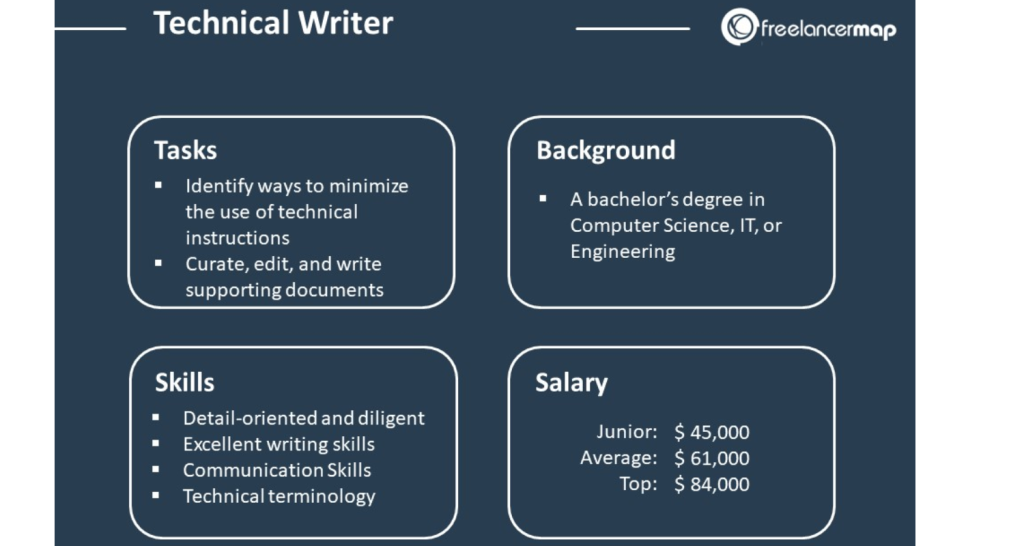In today's ever-evolving digital landscape, the demand for skilled technical writers continues to grow. If you're passionate about technology and have a knack for clear communication, becoming a technical writer can be a rewarding career choice. The best part is, you don't necessarily need prior experience to get started. In this article, we will outline ten valuable tips to help you kick-start your journey as a technical writer, even if you're starting from scratch.
Can Plagiarism Detect by Chat GPT?
Understand the Role of a Technical Writer:
Before diving into the world of technical writing, it's essential to grasp the responsibilities and expectations of the role. How to Become a Technical Writer with No Experience? Technical writers are responsible for translating complex technical information into clear and concise documentation that is easily understandable by end-users. Familiarize yourself with the purpose, scope, and core skills required to excel in this field.
Develop a Strong Foundation:
While you may not have prior technical writing experience, building a solid foundation is crucial. Invest time in understanding basic writing principles, grammar, punctuation, and sentence structure. Online resources, writing courses, and grammar books can help you strengthen these fundamental skills.
Study Technical Writing Best Practices:
Immerse yourself in the world of technical writing by studying best practices. Read industry-standard style guides, such as the Microsoft Manual of Style or the Chicago Manual of Style, to familiarize yourself with the conventions and guidelines for technical writing. These resources will help you understand the accepted standards in the field.

Gain Knowledge in the Relevant Domains:
Technical writing often involves working within specific domains, such as software development, healthcare, engineering, or finance. Identify the domains that interest you the most and start expanding your knowledge in those areas. Stay updated with the latest industry trends, terminologies, and technological advancements.
Build a Strong Portfolio:
A portfolio is an effective way to showcase your skills and potential employers. Since you're starting with no prior experience, create your own projects to demonstrate your ability to create clear and concise documentation. For example, write user guides, instructional manuals, or create online help documentation for imaginary products or software.
Collaborate with Open Source Projects:
Participating in open-source projects is an excellent way to gain practical experience as a technical writer. Contribute to the documentation of open-source software, offer your writing skills to project teams, and seek feedback from experienced contributors. This hands-on experience will bolster your portfolio and demonstrate your commitment to the field.
Network with Professionals:
Building a strong professional network can open doors to opportunities. Attend industry conferences, workshops, and meetups to connect with experienced technical writers. Engage in online communities, such as forums and social media groups, where you can learn from experts and seek guidance. Networking can lead to mentorship, job referrals, and valuable insights.
Embrace Online Learning:
Take advantage of online learning platforms, such as Coursera, Udemy, or LinkedIn Learning, which offer technical writing courses tailored for beginners. These courses provide structured content, practical exercises, and feedback from industry professionals. Completing relevant courses will help you gain credibility and confidence in your abilities.
Volunteer for Technical Writing Assignments:
Look for volunteering opportunities within your community or online platforms. Non-profit organizations, open-source projects, or local businesses may require assistance with technical documentation. Volunteering not only allows you to gain hands-on experience but also demonstrates your willingness to contribute and learn.
Seek Entry-Level Positions and Internships:
When you feel ready to take on paid opportunities, look for entry-level positions or internships in companies that value and support aspiring technical writers. These positions often provide mentorship, on-the-job training, and exposure to real-world projects. Be proactive in your job search and tailor your application to showcase your passion for technical writing, highlighting your skills, portfolio, and willingness to learn.
Conclusion:
Becoming a technical writer with no prior experience is an achievable goal with the right approach and dedication. By following these ten tips, you can lay a strong foundation, develop essential skills, and build a portfolio that demonstrates your capabilities to potential employers. Remember to continuously learn, network, and seek opportunities to gain practical experience, whether through volunteering, collaborating on open-source projects, or pursuing entry-level positions or internships. With perseverance and a passion for clear communication, you can embark on a successful career as a technical writer, even without prior experience.
FAQs
Q: Can I become a technical writer without any prior experience in the field?
A: Yes, it is possible to become a technical writer without prior experience. By following the tips mentioned in this article, you can acquire the necessary skills and knowledge to start your journey in technical writing.
Q: Do I need a specific educational background to become a technical writer?
A: While a degree in English, communication, or a related field can be advantageous, it is not always a requirement. Focus on developing strong writing skills, domain knowledge, and a portfolio to showcase your abilities.
Q: How can I improve my writing skills for technical documentation?
A: You can enhance your writing skills by studying grammar and punctuation, practicing writing clear and concise sentences, and familiarizing yourself with industry-standard style guides and best practices for technical writing.
Q: How important is it to have knowledge in specific domains as a technical writer?
A: Domain knowledge can be beneficial for technical writers as it helps them understand complex concepts and terminologies related to the field they are writing about. However, it is possible to learn and gain domain knowledge as you work on different projects.
Q: Is it necessary to have a portfolio as a beginner in technical writing?
A: While not mandatory, having a portfolio can significantly enhance your chances of landing opportunities. Creating your own projects, volunteering for assignments, and contributing to open-source projects are great ways to build a portfolio from scratch.
Q: How can I find networking opportunities in the technical writing field?
A: You can attend industry conferences, workshops, and meetups related to technical writing. Engaging in online communities, participating in forums, and connecting with professionals on social media platforms can also help you build a strong network.
Q: Are online technical writing courses helpful for beginners?
A: Yes, online courses specifically designed for technical writing can provide structured content, practical exercises, and valuable feedback from industry professionals. They are an excellent way to learn the essentials and gain credibility.
Q: What are the benefits of volunteering for technical writing assignments?
A: Volunteering allows you to gain practical experience, work on real projects, and add to your portfolio. It also showcases your commitment, willingness to learn, and can lead to networking opportunities.
Q: How can I stand out when applying for entry-level technical writing positions?
A: Tailor your application to highlight your passion for technical writing, showcase your portfolio, and emphasize your willingness to learn and contribute. Demonstrating a proactive approach and a strong work ethic can make you stand out to potential employers.
Q: Is it recommended to pursue internships as a beginner in technical writing?
A: Yes, internships provide valuable on-the-job training, mentorship, and exposure to real-world projects. They can help you bridge the gap between theory and practical experience, while also providing networking opportunities in the industry.
